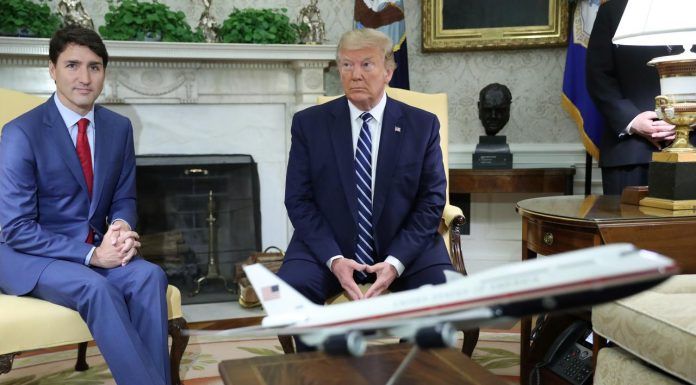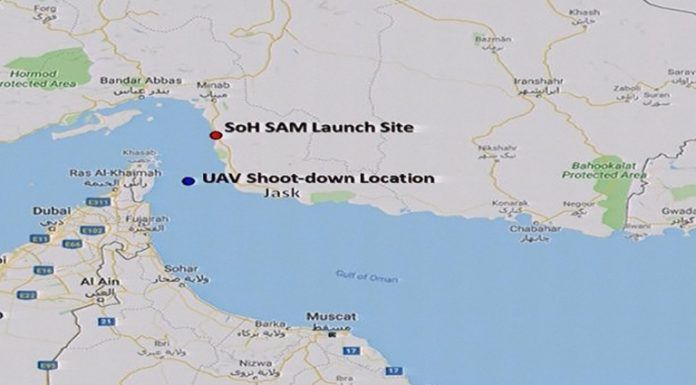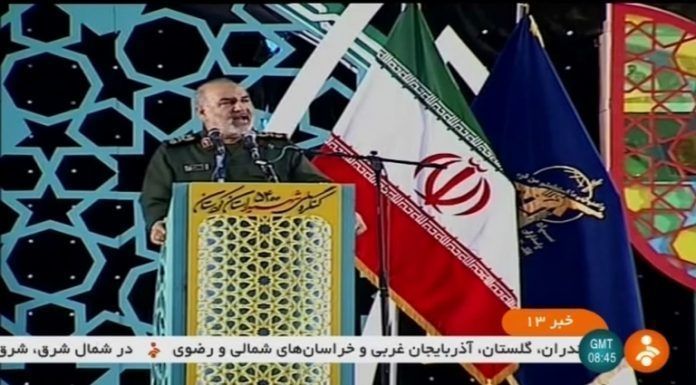By Roberta Rampton, Phil Stewart and Parisa Hafezi
WASHINGTON/DUBAI, June 20 (Reuters) – U.S. President Donald Trump played down Iran‘s downing of a U.S. military surveillance drone on Thursday, saying he suspected it was shot by mistake and that “it would have made a big difference” to him if the remotely controlled aircraft had been piloted.
While the comments appeared to suggest Trump was not eager to escalate the latest in a series of incidents with Iran, he also warned: “This country will not stand for it.”
Tehran said the unarmed Global Hawk surveillance drone was on a spy mission over its territory, but Washington said it was shot down over international airspace.
“I think probably Iran made a mistake – I would imagine it was a general or somebody that made a mistake in shooting that drone down,” Trump told reporters at the White House.
“We had nobody in the drone. It would have made a big difference, let me tell you, it would have made a big, big difference” if the aircraft had been piloted, Trump said as he met Canadian Prime Minister Justin Trudeau in the Oval Office.
The United States, which called the event an “unprovoked attack” in international airspace, is pursuing a campaign to isolate Iran to contain its nuclear and ballistic missile programs and limit its role in regional wars.
It was the latest in an escalating series of incidents in the Gulf region, a critical artery for global oil supplies, since mid-May, including explosive strikes on six oil tankers, as Tehran and Washington have edged toward confrontation.
It was unclear how the United States might respond and U.S. House of Representatives Speaker Nancy Pelosi, the top Democrat in Congress, said Washington had no appetite for war with Iran.
“It’s hard to believe it was intentional, if you want to know the truth,” Trump said, referring to the drone shooting.
The Trump administration called congressional leaders to the White House for a briefing later on Thursday on Iran, a source with knowledge of the meeting said.
Iran has denied involvement in the tanker attacks, but global jitters about a new Middle East conflagration disrupting oil exports have triggered a jump in crude prices.
Saudi Arabia, Washington’s main Gulf ally, said Iran had created a grave situation with its “aggressive behaviour” and the kingdom was consulting other Gulf Arab states on next steps.
Tensions with Iran flared with Trump’s withdrawal last year from a 2015 nuclear accord with Iran and have worsened as Washington imposed fresh sanctions to throttle Tehran’s vital oil trade. Iran retaliated earlier this week with a threat to breach limits on its nuclear activities imposed by the deal.
‘SPY’ DRONE
Iranian state media said the “spy” drone was brought down over the southern Iranian province of Hormozgan, which is on the Gulf, with a locally made “3 Khordad” missile.
A U.S. official said the drone was a Global Hawk that had been downed in international airspace over the Strait of Hormuz, through which about a third of the world’s seaborne oil exits the Gulf.. Earlier, a U.S. official had described the drone as Triton, a similar aircraft.
Navy Captain Bill Urban, a spokesman for the U.S. military’s Central Command, said Iran‘s account that the drone had been flying over Iranian territory was false.
“This was an unprovoked attack on a U.S. surveillance asset in international airspace,” Urban said.
Lieutenant General Joseph Guastella, the top U.S. Air Force commander in the Middle East, told reporters the drone had not violated Iranian airspace “at any time during its mission.”
He said it was shot down while flying at high altitude about 34 km (21 miles) from the nearest point of land on the Iranian coast.
Iran‘s foreign ministry said the drone had violated Iranian airspace and warned of the consequences of such “illegal and provocative” measures.
Iranian Foreign Minister Mohammad Javad Zarif said on Twitter that the drone had taken off from the United Arab Emirates “in stealth mode & violated Iranian airspace.”
Independent confirmation of the drone’s location when it was brought down was not immediately available.
An Iranian Revolutionary Guards statement said the drone’s identification transponder had been switched off “in violation of aviation rules and was moving in full secrecy” when it was downed, Iranian state broadcaster IRIB reported.
IRANIAN ‘RED LINE’
“Our airspace is our red line and Iran has always responded and will continue to respond strongly to any country that violates our airspace,” Ali Shamkhani, secretary of the Supreme National Security Council, told Iran‘s Tasnim news agency.
The Global Hawk’s manufacturer, Northrop Grumman Corp , says on its website that it can fly for over 24 hours at a time at altitudes higher than 10 miles (16 km).
Upping the ante in its dealings with Iran, Washington said on Monday it would deploy about 1,000 more troops, along with Patriot missiles and manned and unmanned surveillance aircraft, to the Middle East on top of a 1,500-troop increase announced after the May tanker attacks.
European diplomats have said more evidence is needed to pinpoint responsibility for the tanker strikes.
U.S. sanctions have hammered Iran‘s economy, scuttling its oil exports and barring it from the dollar-dominated global finance system. That undoes the promise of trade rewards from the 2015 deal to curb its nuclear ambitions.
Trump has sent forces including aircraft carriers, B-52 bombers and troops to the Middle East over the past few weeks. Iran said last week it was responsible for the security of the Strait of Hormuz, calling on American forces to leave the Gulf.
Tehran has also said it will shortly suspend compliance with the nuclear deal’s curbs on its uranium enrichment, meant to block any pathway to nuclear weapons capability, and threatened to disrupt oil shipments through the Strait of Hormuz.
Senior officials from Iran, France, Germany, Britain, China and Russia will meet on June 28 in Vienna to discuss ways to save the 2015 nuclear accord, the European Union said on Thursday.
(Reporting by Roberta Rampton, Phil Stewart and Parisa Hafezi; Additional reporting by Asma Alsharif and Stephen Kalin in Riyadh, Doina Chiacu, Richard Cowan and Jeff Mason in Washinigton and Robin Emmott in Brussels; Writing by Parisa Hafezi and Arshad Mohammed Editing by Mark Heinrich, Alistair Bell and Peter Cooney)




